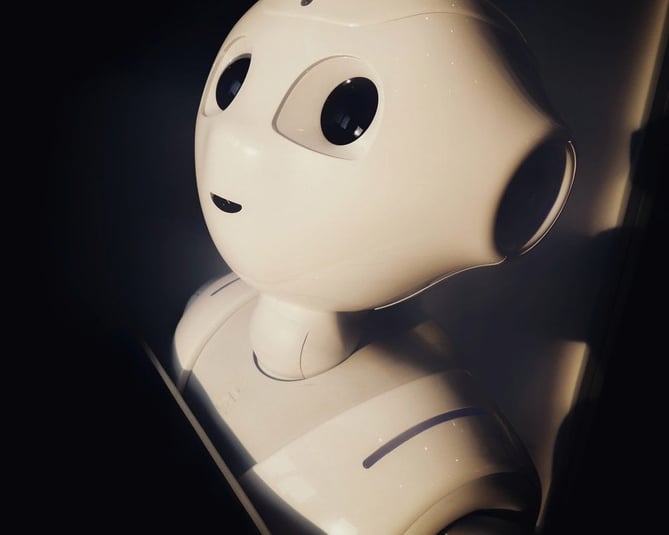Everywhere you look in the weeks leading up to and following New Year’s Eve, people are making predictions for the year to come.

One of our biggest obsessions is how artificial intelligence is transforming the way we learn and develop critical professional skills. So, naturally, we’ve been eagerly poring through predictions from the ed-tech world, about how artificial intelligence and similar innovations will become even more of a game changer for higher education in the coming year.
By NOAH ZANDAN
There’s a lot of good stuff out there from thought leaders, theorists, and practitioners. Based on our own research and experience—and building on the shoulders of the experts we admire—we’ve collected a few of our favorites.
3 Ways Artificial Intelligence Will Impact Higher Education in 2020
1. Lesson Planning
While AI-based learning platforms have powerful implications for each individual user, they can also be game changers for educators tasked with ensuring dozens—or even hundreds—of students every semester leave their class with the theoretical and practical skills they need to reach the next level of success.
However, the bigger the classes, the more a professor is flying blind in terms of recognizing how much background knowledge students are bringing to the table, what they’ve already mastered, and what they need to focus on.
So how can a higher education professor develop a lesson plan that meets students’ needs when she doesn’t actually understand the students’ needs?
Many of today’s AI-driven ed-tech applications give educators the information they need to make more educated decisions about how to best reach their classes. Given aggregate data about their class’s historical performance and skills, they can better understand how to tailor the lesson plan for each group’s individual needs—no matter how large the class.
As professors begin to embrace this capability, recognizing its potential to dramatically improve student success in their classes, myKlovr founder and CEO Gustavo Dolfino believes AI-driven performance prediction and lesson planning will take off:
More systems and hardware will become AI enabled for interactive learning allowing teachers to predict a student’s learning behavior. AI enabled teaching assistants, virtual reality, and augmented reality will finally converge to allow for accurate data collection and analysis resulting in accurate and predictive student assessments.
-Dolfino, in ELearning Inside
2. Personalization & Microlearning
Students, too, will embrace AI-driven learning platforms as opportunities to supplement their classroom learning with highly specific, concrete lessons tailored to their unique needs. Whether this means going home after class and clicking through supplemental modules that cover the material they felt least comfortable with, or seeking out skills-based microlessons to help them better prepare for their next job interview, students will be able to access educational resources curated—and often even designed—specifically for them.
In a roundup for eCampus News, Woz U president Chris Coleman discussed this phenomenon through the lens of skills-based learning for career preparation:
I foresee systems evolving next year towards a self-directed format, where data-driven platforms provide students with recommendations for learning units that are in line with in-demand careers. As skillsets are identified by employers for future openings, students will be educated with the proficiency in sought-after areas for a pathway towards a thriving profession.
3. Equality
And finally, perhaps one of the most important roles AI could play in education is evening the playing field. In a recent Tech Edvocate article, Dr. Matthew Lynch writes about the power of ed tech to increase students’ social mobility, providing them educational opportunities that may otherwise be out of reach.
Without intervention, economically disadvantaged youth may give up on their social mobility, and yet many of these students may not realize that they have access to the one tool that can help them boost their social mobility: edtech. Low socioeconomic status youth thrive when they have a supportive network that encourages their progress and offers new alternatives.
Ultimately, it’s social capital that makes a difference in children’s lives because social mobility increases the likelihood of personal success. Edtech can boost social mobility by allowing for informed decision-making, especially when it comes to higher ed.
Discover more about AI with RobotLAB!
Check our products page and discover different products that are ideal for your STEM classroom! And don't forget to take a look to our online learning platform Engage!K12 that offer a wide range of lessons for students and teachers !
RobotLAB products Take me to Engage! K12

